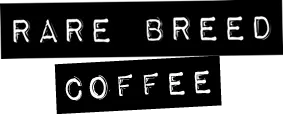Are Certifications Bogus?
Do you believe in certifications? Well, we do and so do our growers. When we visit our coffee growers, they fully believe in the benefits of certifications, not only for the prosperity of the land, but also the higher price they earn. Below are the main coffee certifications and what they really mean.
Organic Certification

Certified Organic Coffee is produced according to sustainable practices, without the use of synthetic fertilizers, pesticides or other harmful agrochemicals. In order for a coffee to be certified as organic, the farm must undergo evaluation from an independent certifying agency. In many cases it takes three years before a farm is actually certified. Each year the farm is inspected during all stages of production. It is continually monitored for adherence to sustainable agricultural techniques and ecologically sound methods of processing. Everyone that handles the coffee between the farmer and the roaster have to be certified for the coffee to be called “organic”. As a coffee roaster, we must meet the USDA specifications to label our coffees as organic. We are the first roaster to be certified in NH!
Fair Trade License

Fair Trade Certified™ enables sustainable development and community empowerment by cultivating a more equitable global trade model that benefits farmers, workers, fishermen, consumers, industry, and the earth. We achieve our mission by certifying and promoting Fair Trade products.
Fair Trade empowers people to make choices for the good of themselves and their community, regardless of gender, status, position in society, or position on the globe. Rigorous standards give farmers, workers, and fishermen a voice in the workplace and the community.
When people have the capacity to invest in better futures, the result is a healthier workforce and ultimately higher quality goods. Our model is fueled by committees of farmers, workers, and fishermen who decide how to invest the Fair Trade Premium based on their community’s greatest needs: often clean water, education, and healthcare.
Environmental practices have long-term impacts on the livelihoods of producers, communities, and the planet. Our standards work to keep the planet healthy for generations to come by prohibiting the most harmful chemicals and taking measures to protect natural resources.
Shade Grown License
Many of our Certified Organic and Fair Trade coffees are also shade grown, a traditional farming method in which coffee trees are grown alongside other crops under a canopy of taller trees. The shade trees fix nitrogen in the soil, fostering the growth of the coffee bushes, and their fallen leaves provide nutrients, further reducing the need for chemical fertilizers. The mixture of vegetation prevents erosion and protects the coffee from harsh weather. Shade grown farms also provide vital wildlife habitat. Each year, billions of migratory birds make the journey from the temperate climates of North America where they breed to the tropical climates of the South. Warblers, orioles and thrushes, as well as indigenous birds and animals make shade grown coffee farms their home. The Scarlet Tanager, pictured right, migrates from the deciduous forests of eastern North America as far south as the Andean foothills of Bolivia. By drinking shade grown and fair trade coffee, you can help support small-scale farmers, enabling them to farm sustainably, preserving wildlife habitats and protecting the environment.

